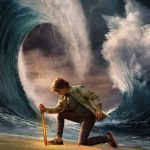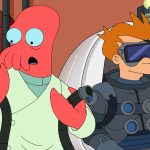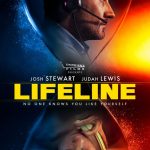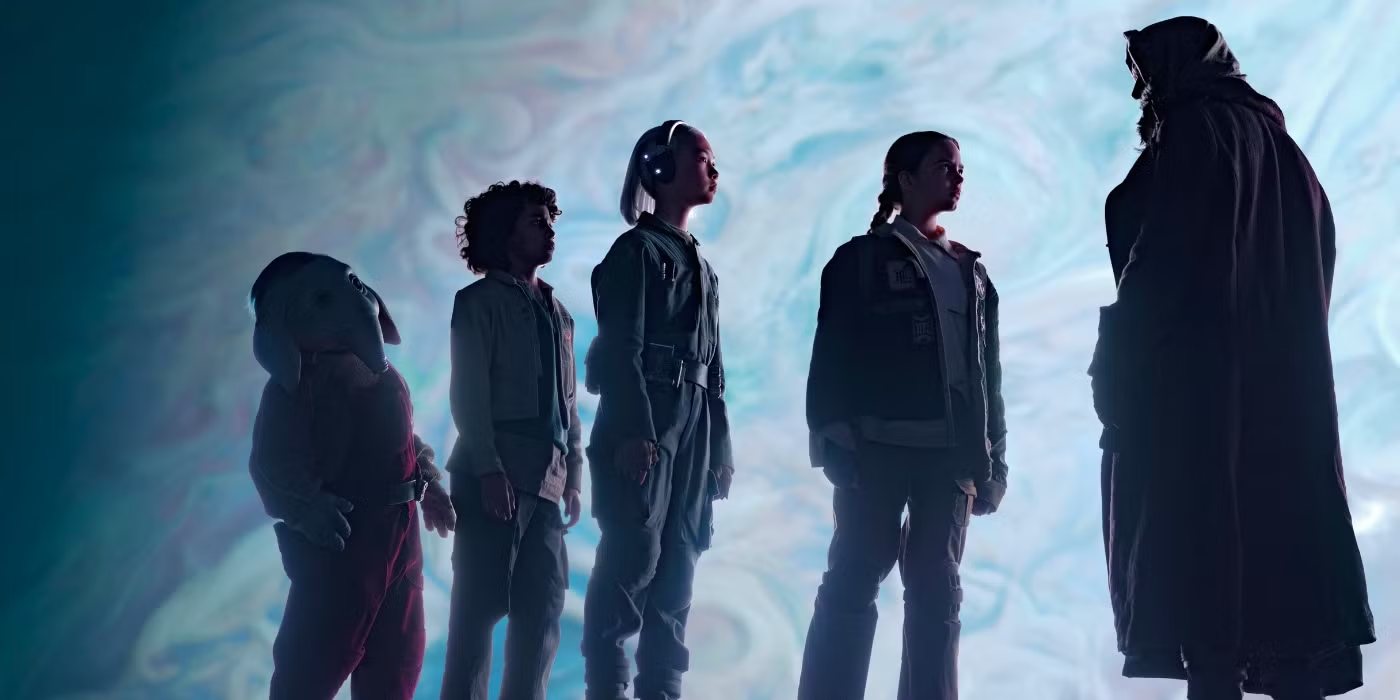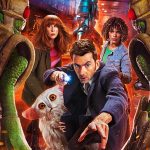WonderCon 2024: 2nd Annual Scene Breakdown: Behind the Camera of Film and TV Shows
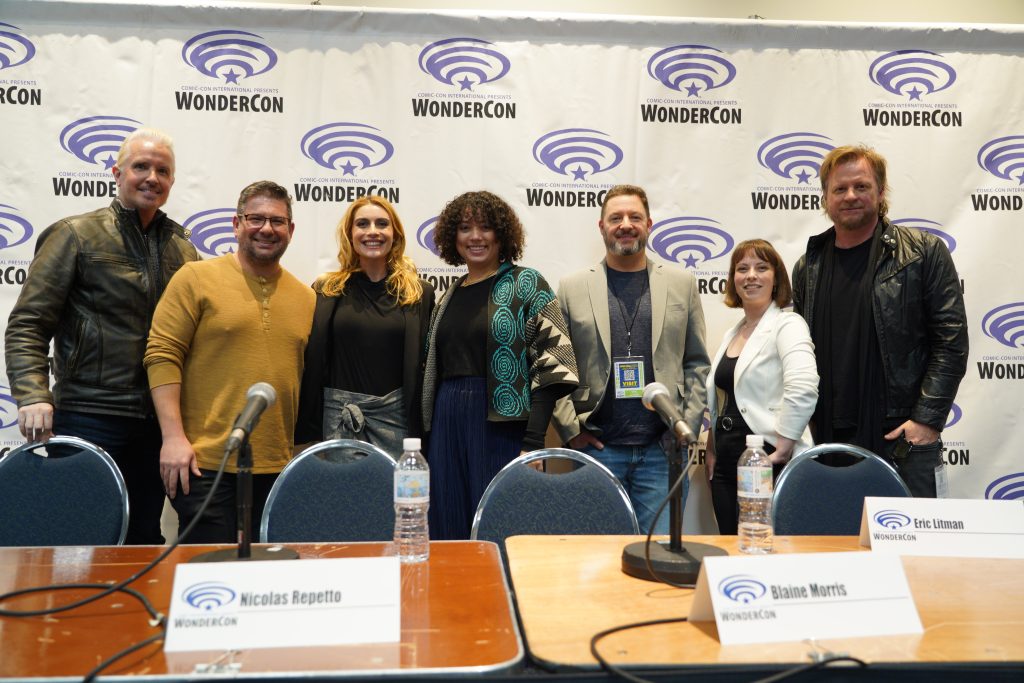
WonderCon has lots of experts attending: from editors, directors, and more. I got to talk to some of the people for Impact24’s panel on ‘Behind the Camera of Film and TV Shows,’ which had some of these experts.
I asked moderator Victoria Male to describe the point of the panel. “It’s taking fans and people who are looking to break into the industry behind the scenes of their favorite shows and movies, talking to creatives about their different crafts and how they made the things that we all love,” she said. “We wanted to give everyone a really wide breadth of what behind the scenes looks like in film and television.”
I asked Male what it took to be a panel moderator. “It’s almost like you’re hosting a party,” said answered. “You want everyone to feel like they’ve been seen and greeted, and have a chance to speak and say what they want to. And then you want to facilitate people being able to talk to each other.”
Male is more than a moderator. She also is a writer and producer. I asked her to talk about her current project, Showstopper, which recently became a finalist for the 2023 Academy Nicholl Fellowship in Screenwriting. “It’s about the making of Singin’ in the Rain during the Red Scare. It’s about Gene Kelly as he’s struggling to make what will become his magnum opus, right as he discovers that his wife is blacklisted as a Communist.”
Since the panel was about fans wanting to break into the industry, I asked Male what kind of advice she’d give to someone wanting to break in. “Because each trade differed a little, but I think the thing that we all were saying just in different ways and different flavors were take a lot of initiative. Reach out to people and ask for help as you’re getting yourself started. Treat everyone with kindness. And then try to think of ways you can get yourself in that are a little bit outside of the box.”
The first panelist I spoke to was the editor of One Piece, Eric Litman. I asked him what it takes to be an editor. “Patience, hard work. Know your craft,” he said. “Editing: there’s a technical side to it. So you have to know the ins and outs of the technical side. AVID is what I use to do all my editing. But then there’s also a creative side understanding story understanding character development, understanding arcs, and you have to sort of blend all that in together.”
He’s been doing it for 20 years. I asked whether he had an average day or if it depended on the project. “Every day is different,” Litman said. “With editing, you’re sort of addicted to your work. That’s part of the deal. You have to have a love for it; you have to really enjoy what you’re doing. Because a lot of times it’s you with the material in a dark room by yourself. And you’re figuring it out and you’re making decisions that affect the show right there. And then when you eventually start working with people, collaboration is a huge part of it. And you have to know how to collaborate and how to communicate why you did what you did.”
I asked him what he loves about it. “There’s so about it,” Litman said. “I love when I’m by myself and I’m working on the material. I’m making an imprint on the show: I’m deciding what I what I think we need to do. But then there’s also this collaborative element where you’re working with people. And sometimes you’re figuring things out together and figuring things out at the moment. You’re changing the show to do something that maybe that wasn’t intended. And it’s when those types of things happen and you have true collaboration with everyone – it’s a lot of fun. And there’s a lot of excitement.”
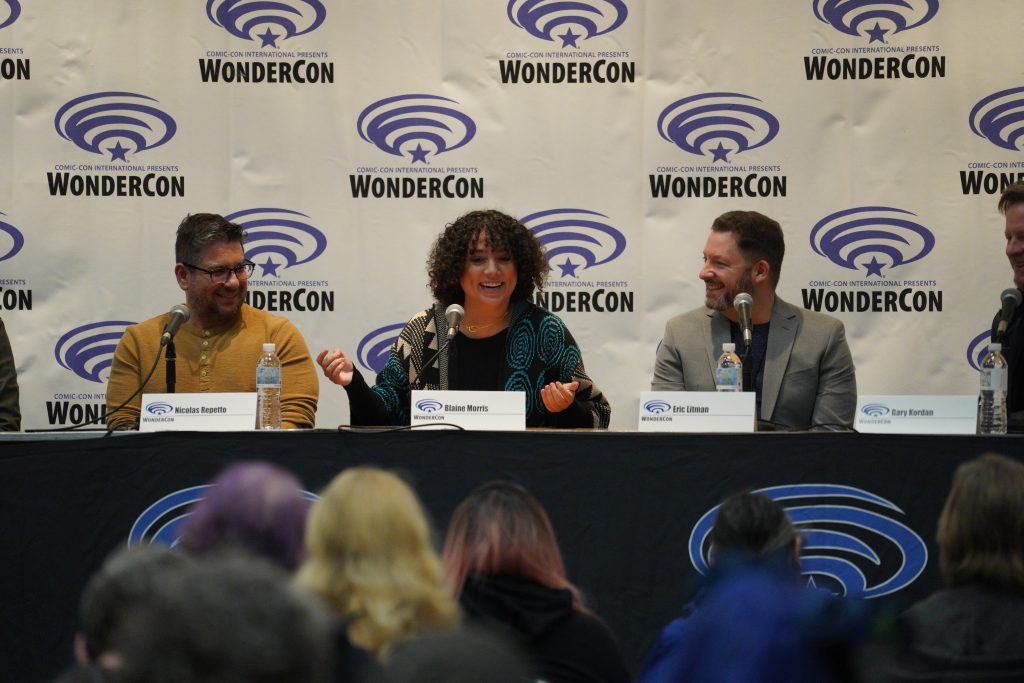
Next, I talked to producer Blaine Morris. Probably best known for her recurring role on MTV’s Skins, she recently turned her skills to behind the camera. I asked her what exactly a producer does. “A producer does a lot of things, Morris said. “They’re running the show, organizing the show, being HR, being a therapist, especially at an indie level. You do kind of everything. And then you’re also hiring the editor and like giving notes on the final project as well. It’s an all-encompassing, long job.”
Her favorite part of being a producer is the creative aspects. “Working with a director and helping them own their vision, giving them notes on things,” she said. “And I just really love sets: it’s such a communal place. A lot of the projects I work on I like to keep diverse. We like to have a community and family feel, so set is kind of my favorite time. Filmmaking is like a big puzzle, that you have to figure out where all the little pieces go. And if there’s a fire, there’s always fires coming. And it’s like, how do you solve those with joy, compassion, and get shit done?”
Morris is a Puerto Rican woman, and I asked her how that affects her job as a producer. “I’ve definitely encountered some hurdles. For me, it’s about creating my own opportunities a lot of the time, and finding people who do believe me. There’s been instances where people don’t and I say, okay, that’s fine. I’m going to move on and find someone else. And just don’t take the rejection personally, and just be like, they don’t see what I am capable and I am able to do.”
I asked her what kind of advice she’d give someone wanting to get into producing. “A lot of producing is just like you got to do it,” Morris said. “It’s finding a project and a director and some friends that you really like being around because you can spend a lot of hours together and figure out how to make that happen and go online. A lot of producing is really self-generating for yourself and being your own boss.”
Finally, I talked to Gary Kordan, a production designer for Key & Peele. As with the others, I asked what his job actually entailed. “A production designer is the first to hire creatively on a show, who is handed a script that says ‘here’s 30 scenes’,” Kordan said. “And the scene is a cafe, a boat, a ship, a post-apocalyptic world. And their job is to figure it out. It’s such a collaborative thing. My job is to oversee creatively that it looks good. It’s servicing what the director and the talent wants. It’s a big job.”
We talked a bit about what he had said on the panel. “I’m very lucky: as a production designer, our jobs don’t last years – they last months,” Kordan said. “So you work on three or four shows, sometimes ten shows a year, and some are good, some are forgotten, and some are memorable. I spoke a lot about how the craft of that show and the choices that we made were always rooted in realism. As a production designer, I like to honor the craft of making it a tangible real thing that was made with hands and creativity.”
His advice for getting into the industry? “Oh, my advice I feel is foolproof,” Kordan said. “Throughout the country, there are young people who look at what I do and look at what their favorite people do and say ‘that’s them and I’ll never be able to do what they’re doing.’ And it’s not true. The truth is, if you’re passionate and a hustler and have some talent, go to IMDB and look at the people who made it. Follow them on Instagram.”
If you’re not from LA, that’s no longer an issue, Kordan said. “Film and television is everywhere in the country now, everywhere from Atlanta to New Jersey to Chicago to Houston has film and television production,” he said. “Get on one of those crews as a PA: start at the bottom. And what you’re doing at home: you’re editing and you’re directing and you’re doing your own thing and you’re calling yourself the thing you want to be in ten years. And what happens is eventually the scales tip, and you’re no longer doing the little music videos. You’re growing and moving up the industry, and then you’re joining the union. I feel like that’s the only way to do it. There’s no resume, there’s no LinkedIn that’s going to help you. No matter who you are, you’re going to start at the bottom and learn: but have a focus on who you want to be in ten years and call yourself that.”
The panel will eventually be uploaded to Impact24’s YouTube channel. For more information about them, visit their website.
See all my WonderCon 2024 coverage here.
Author: Angie Fiedler Sutton
Angie Fiedler Sutton is a writer, podcaster, and all-round fangirl geek. She has been published in Den of Geek, Stage Directions, LA Weekly, The Mary Sue, and others.
She also produces her own podcast, Contents May Vary, where she interviews geeky people about geeky things. You can see all her work (and social media channels) at angiefsutton.com.
Help support independent journalism. Subscribe to our Patreon.
Copyright © The Geekiary
Do not copy our content in whole to other websites. If you are reading this anywhere besides TheGeekiary.com, it has been stolen.Read our

